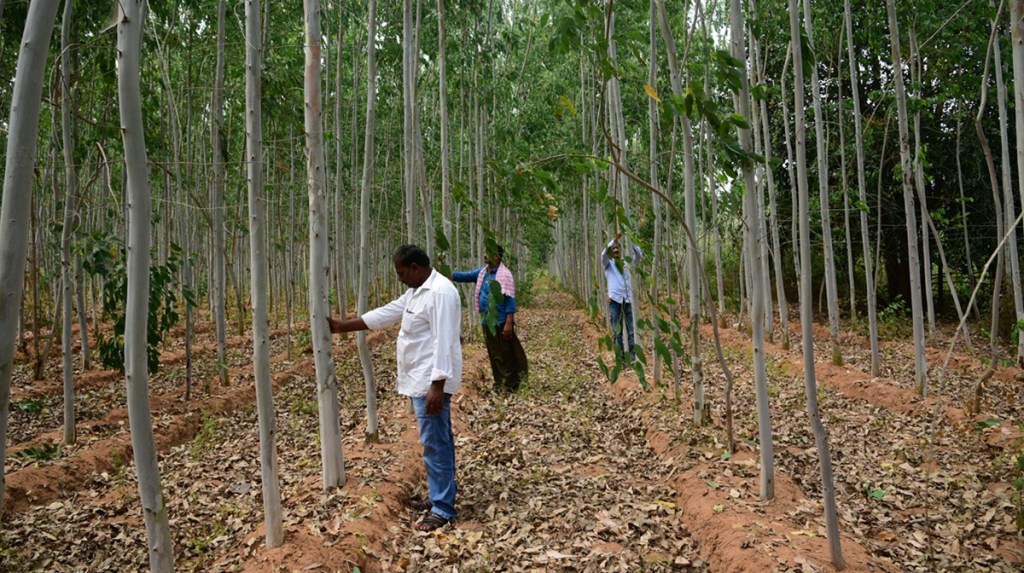With the growing climate change concerns in India as well as across the world, public-private-people collaboration is working towards revolutionising a green movement. With around 32 per cent of India’s land suffering degradation and 25 per cent succumbing to desertification, the urgency for sustainable action has become even greater. Amidst this backdrop, ITC, with its 360-degree sustainability approach, is making significant strides in restoring natural ecosystems through its multi-dimensional initiatives.
ITC’s sustainability journey, spanning over a quarter of a century, is rooted in the vision of making sustainable and inclusive growth the foundation of its corporate strategy and an integral part of its business sustainability goals, it said. The conglomerate runs large-scale environment programs, based on active community participation and livelihood generation, that are designed to be scalable through effective partnerships with governments, NGOs, and relevant institutions.
ITC has listed examples wherein its interventions have made an impact in regard to this year’s World Environment Day focus areas of Land Restoration, Desertification and Drought resilience.
1. Climate Smart Agriculture
ITC’s Climate Smart Agriculture (CSA) program is turning this vision into reality. Empowering 10,50,000 farmers across 29 lakh acres in 19 states, this initiative has transformed traditional farming. By reducing greenhouse gas emissions from select crops by up to 66% and boosting farmers’ net returns by up to 90% (between 2016 and 2021), ITC has set a new standard for sustainable farming. A study of 43 villages across three states revealed that 70% have transitioned into the High Resilience, High Yield category, thus becoming Climate Smart. The Climate Smart Village programme, spanning 1,900,000 acres, promotes regenerative and climate-resilient agriculture.
2. Water Stewardship
ITC’s 360-degree Water Stewardship programme focuses on enhancing access to irrigation for farmers, rejuvenating river basins and improving groundwater resources. ITC’s Integrated Watershed Development Programme has breathed new life into approximately 16.38 lakh acres of water-stressed regions, benefiting 482,000 individuals. By implementing rigorous demand-side water management practices across 12.5 lakh acres, water savings of 20% to 45% have been achieved across 15 different crops.
3. Biodiversity
Safeguarding the country’s thriving and diverse ecosystems is the core vision of ITC’s biodiversity conservation initiative. With a three-pronged strategy—protecting biodiversity throughout agricultural value chains, involving communities in landscape restoration, and deploying nature-based solutions—ITC is securing a sustainable future for local communities.
4. Afforestation
ITC’s large-scale afforestation programme has greened over 11,75,000 acres, creating 212 million person-days of employment for small and marginal farmers across 11 states. Through its regenerative forestry programme, ITC not only ensures a sustainable fiber value chain for its Paperboards and Paper business but also empowers marginal farmers by turning wastelands into thriving livelihoods.
5. Waste Management
ITC’s innovative and scalable waste management solutions focuses on transforming waste into wealth. ITC’s flagship ‘WOW – Well Being Out of Waste’ programme, a public-private partnership with municipalities, focuses on community-led source segregation and collection, supporting sustainable livelihoods for waste collectors. This programme has reached over 2.2 crore citizens in 60 lakh households.
Aligned with the Swachh Bharat Mission, ITC’s social investments programme Mission Sunehra Kal also implements decentralized Solid Waste Management, empowering community-based groups to collect and compost waste locally.
In FY23, ITC maintained its Plastic Neutrality for the second consecutive year, managing 70,000 MT of plastic waste, surpassing its packaging usage.

